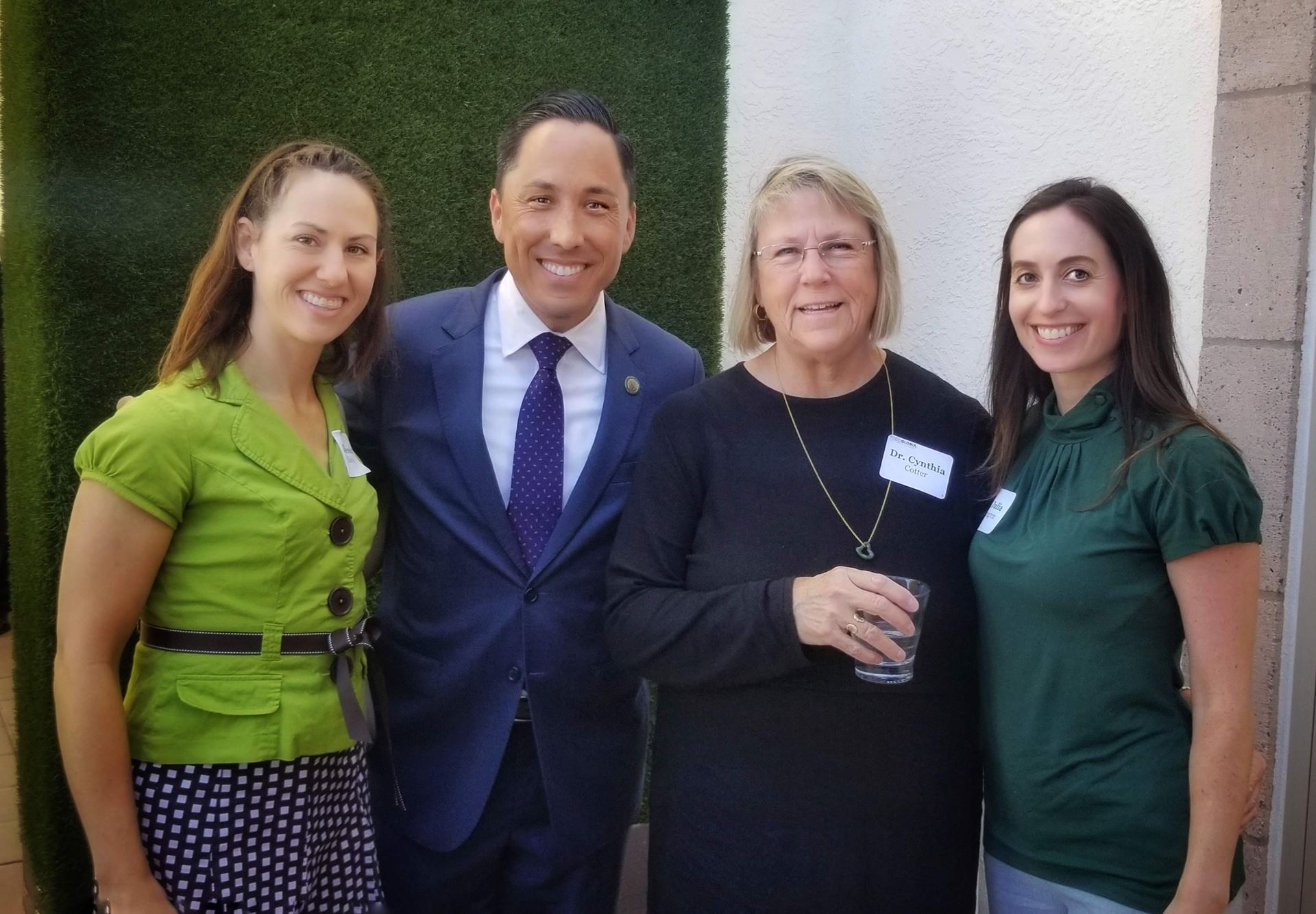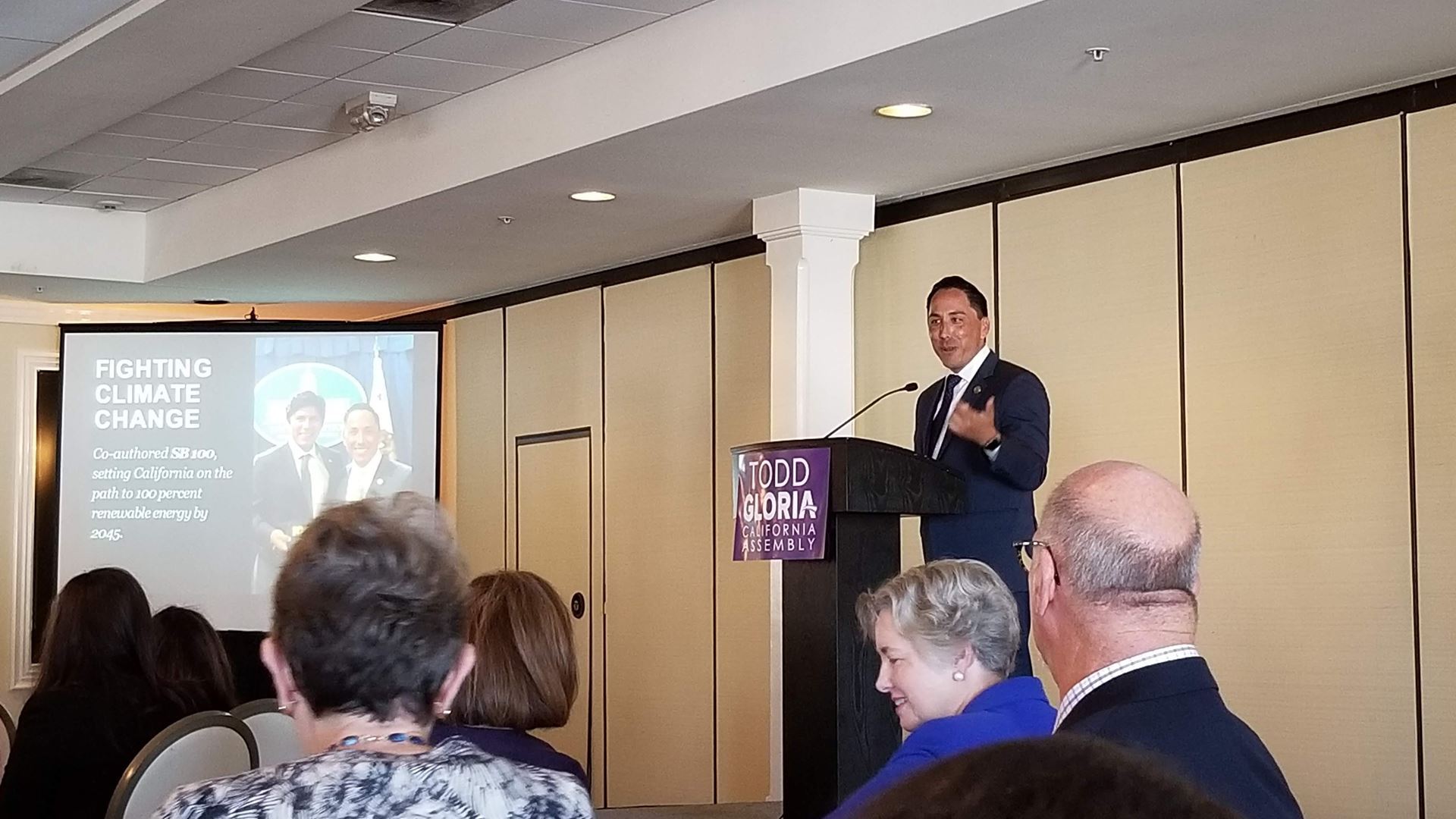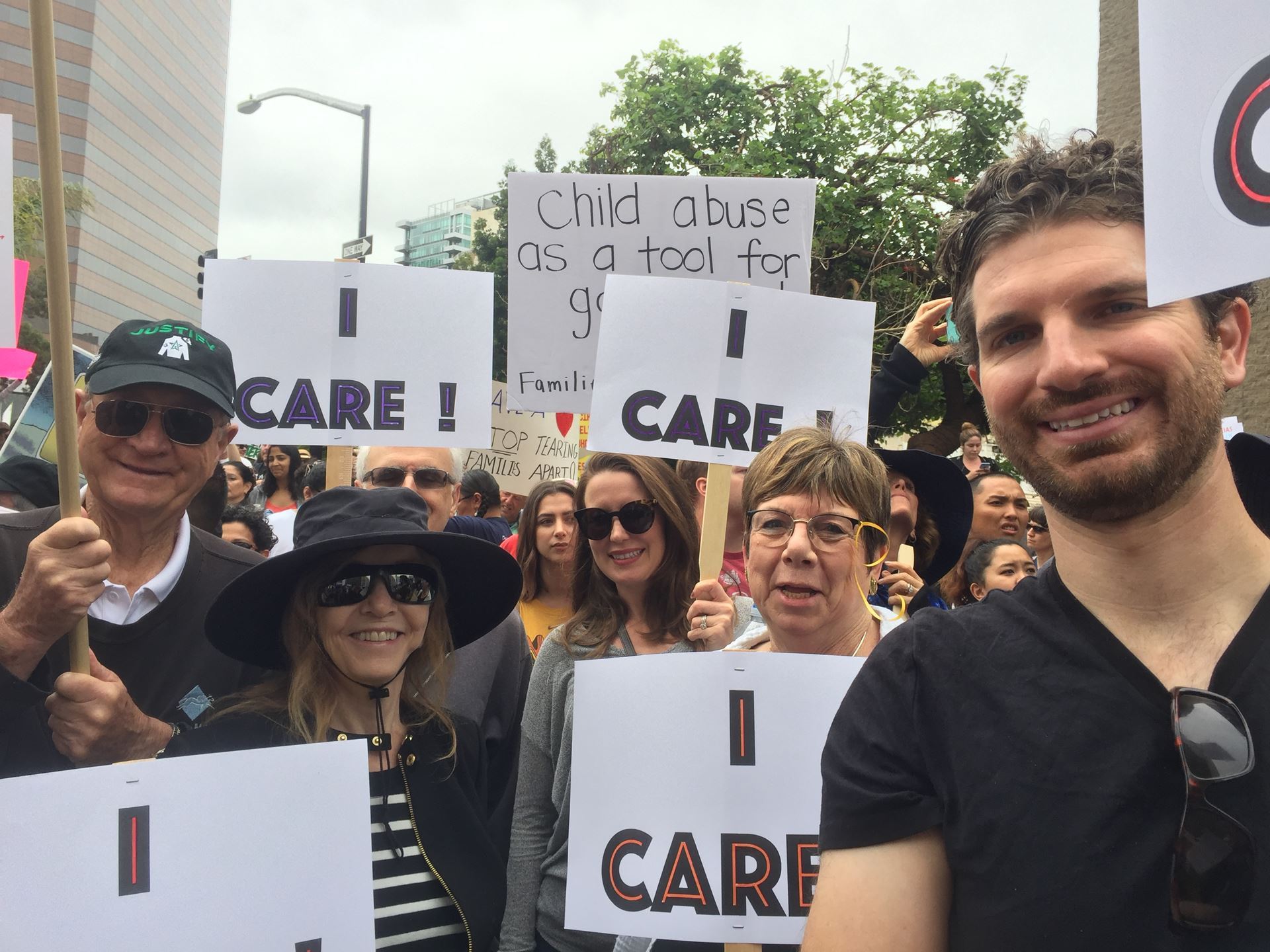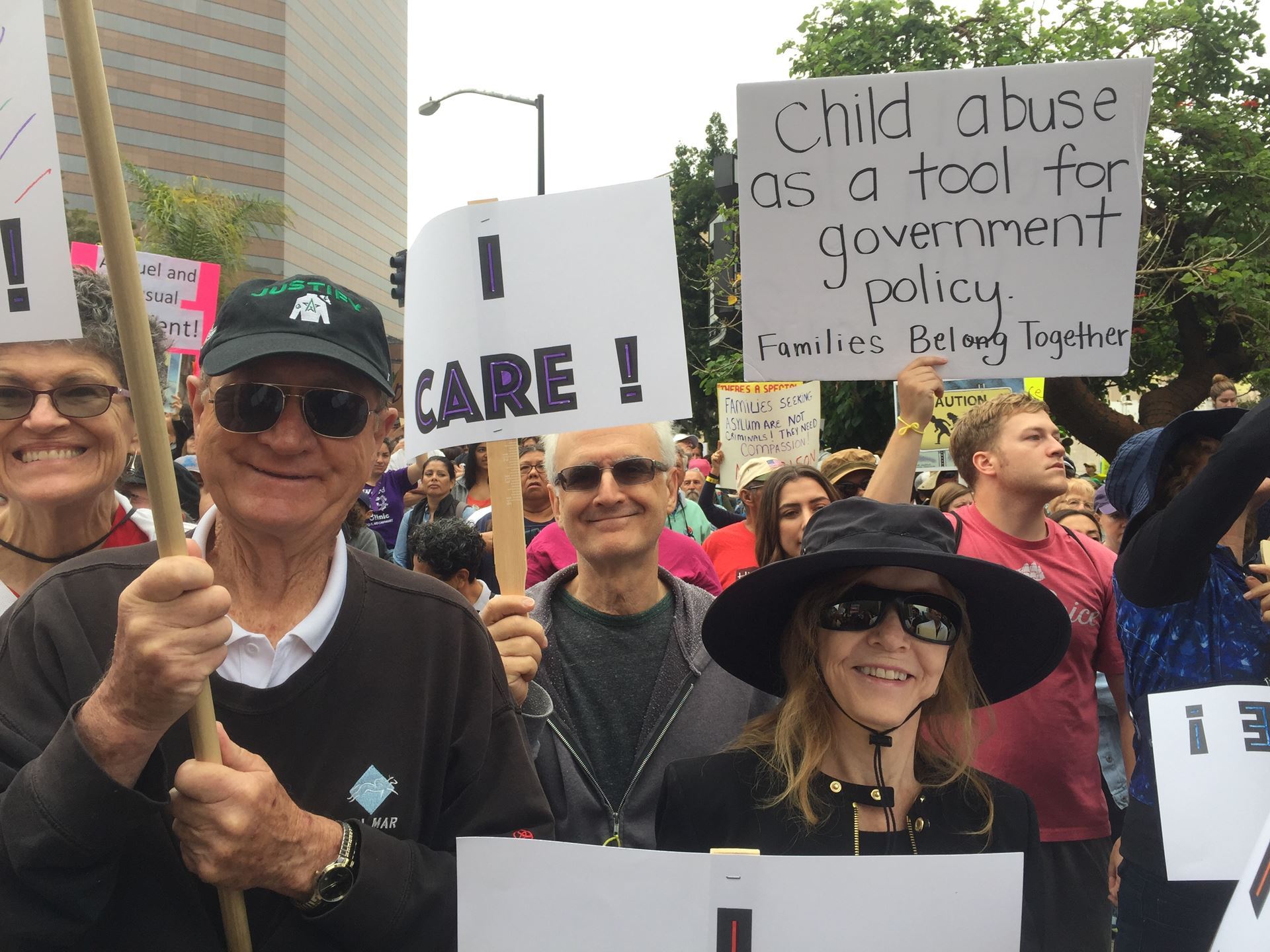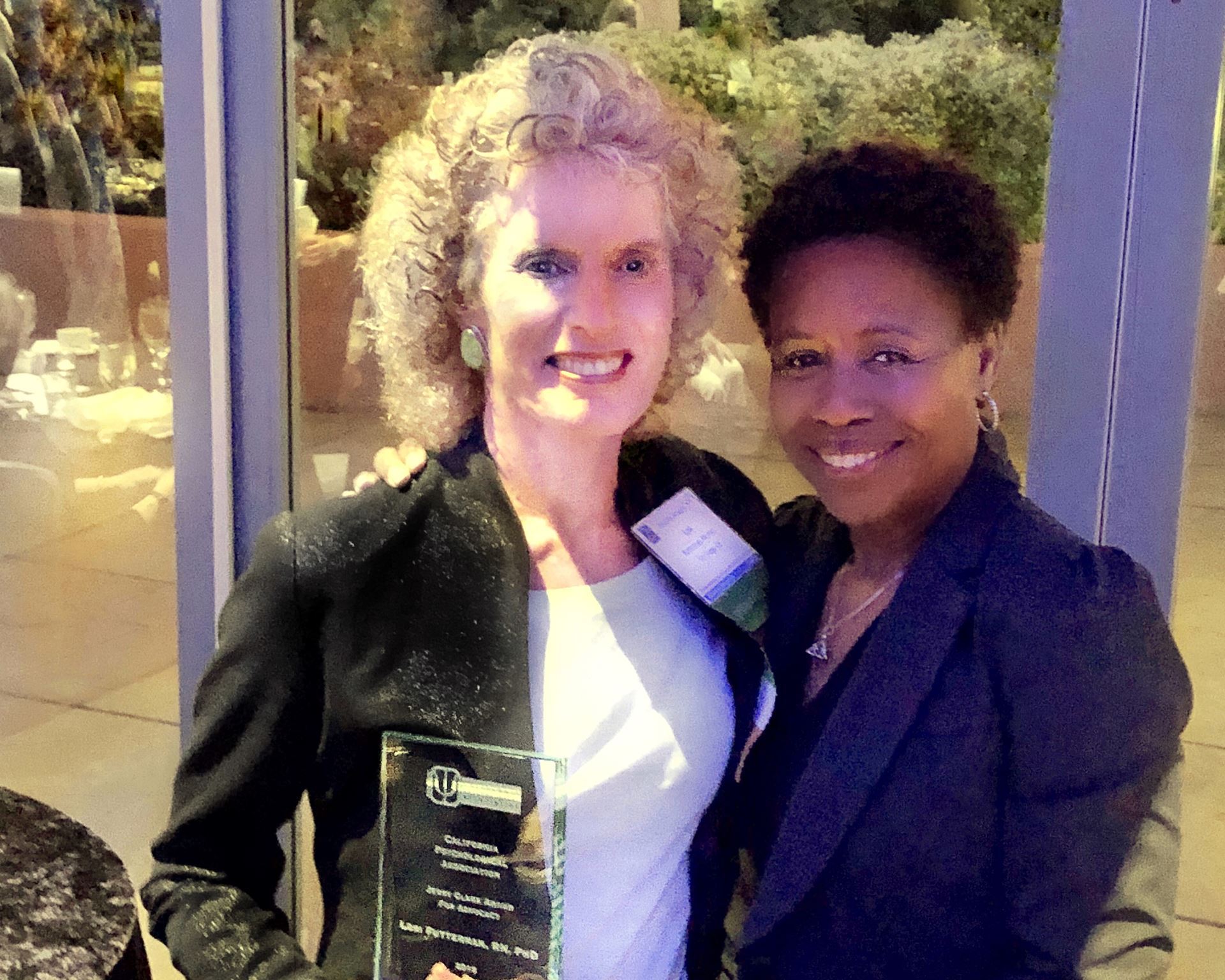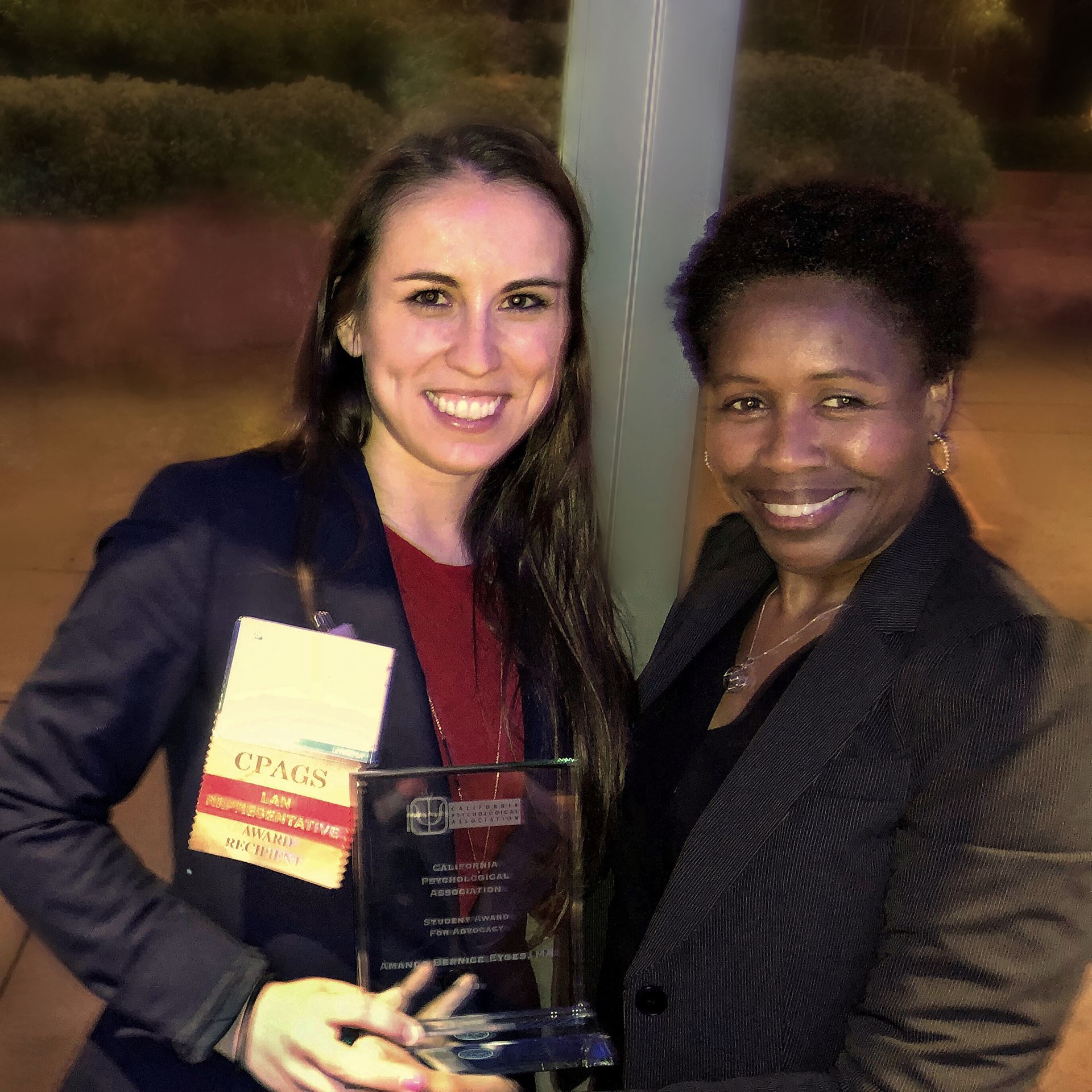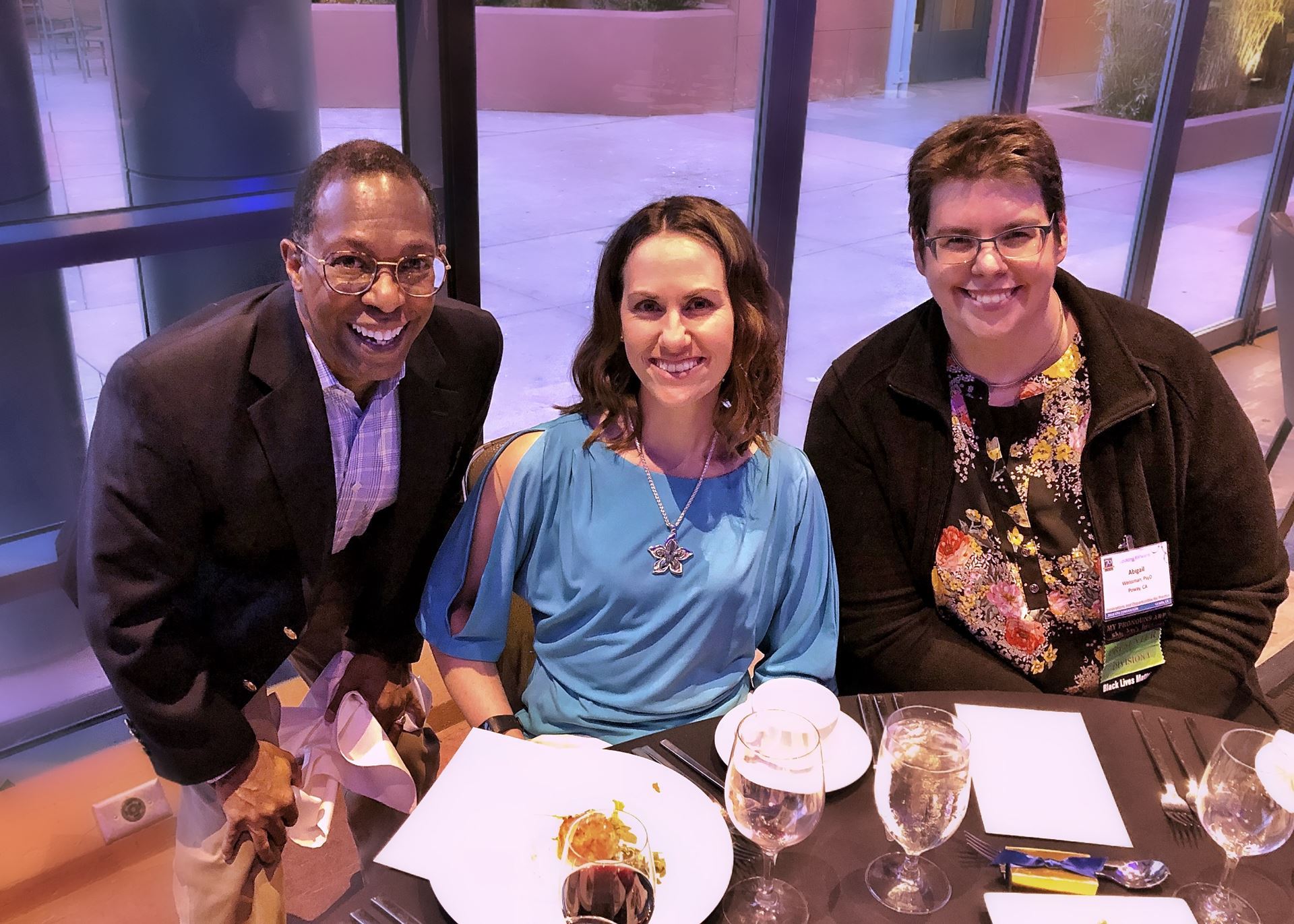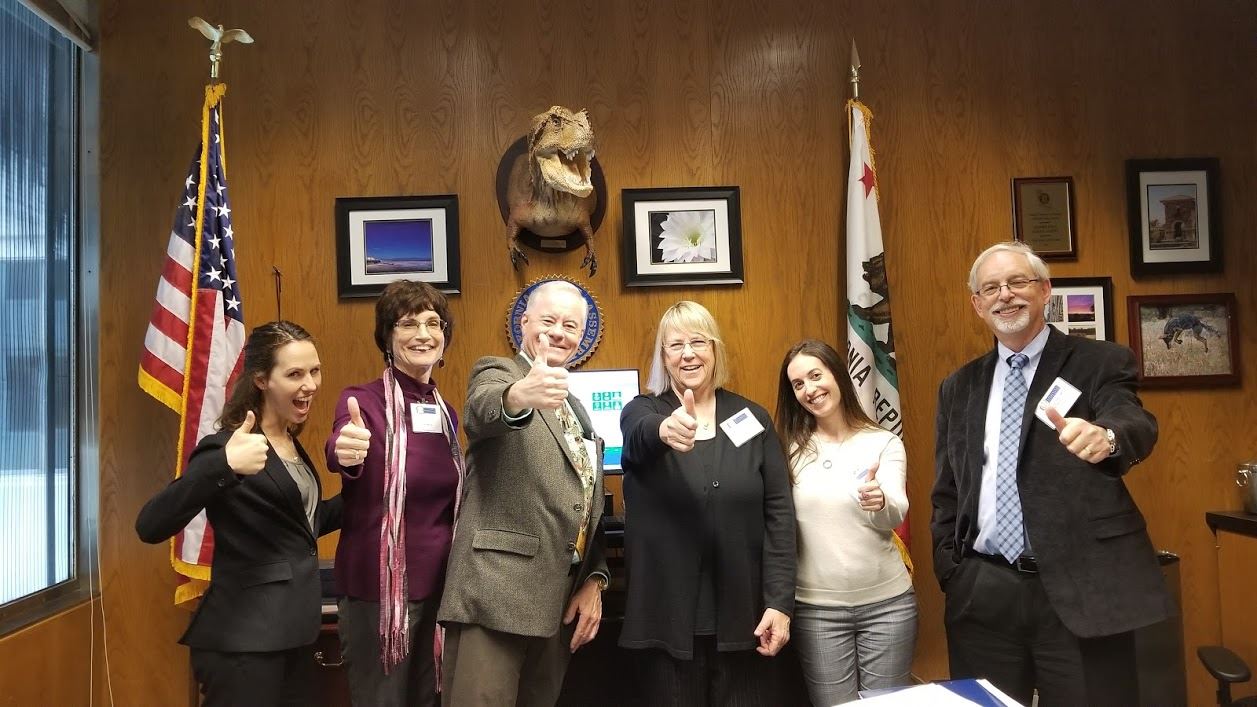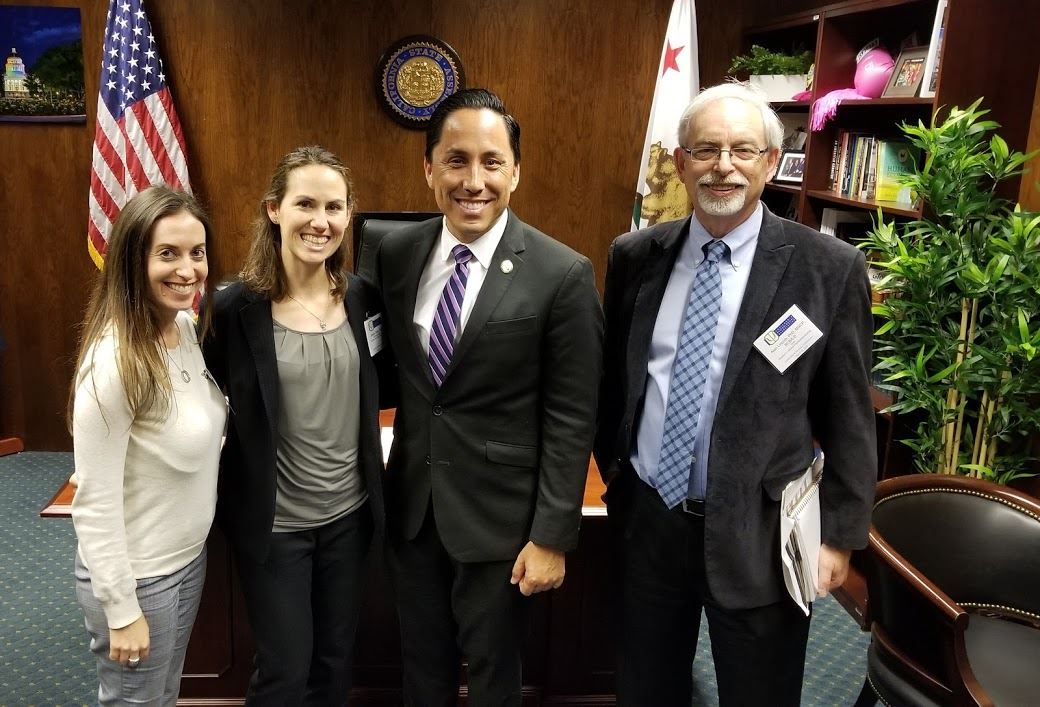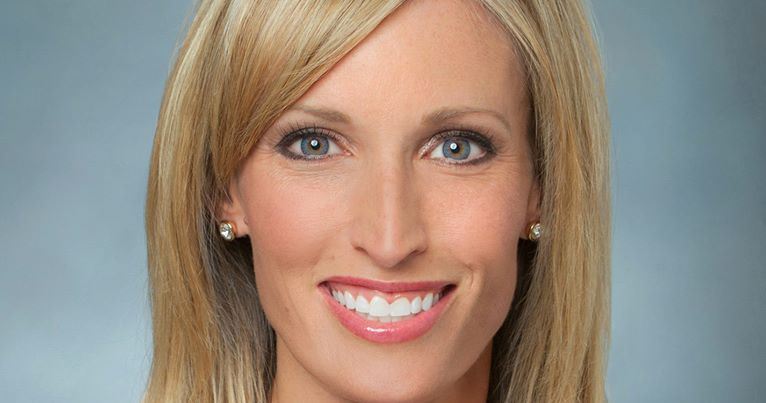- Home
- Government Affairs Committee Updates
Government Affairs Committee Updates
|
GOVERNMENT AFFAIRS |
DOING TELEPSYCHOLOGY IN OTHER STATES TEMPORARY PRACTICE PRIVILEGES: Most psychologists have been doing some form of telepsychology in order to safely treat their patients during the Covid-19 pandemic. Some of you also report having patients who have moved to other states temporarily and even permanently, and who wish to continue in treatment with you. Because health care provider licensing is state-based, a psychology license allows you to practice only in the state or territory that issued your license. Thus, if you have a patient in another state whom you are treating via telepsychology, or if you yourself have relocated to another state and wish to treat patients in California, you should get temporary practice privileges in the other state. These can vary greatly from state to state. A up-to-date list of the temporary practice provisions for each state are provided at https://www.apaservices.org/practice/clinic/covid-19-telehealth-state-summary. Some of these state-specific provisions have been instituted in response to Covid-19 in the form of waivers, and other states have had temporary practice privileges even prior to Covid-19 as part of their state psychology licensing laws. Typically, a state temporary practice provision includes a limitation on the number of days in a calendar year that an out-of-state psychologist may practice without having to obtain licensure in that state. Some states require you to obtain a temporary license or permit. As the Covid-19 pandemic drags on, many of these temporary privileges have reached their state-mandated limits, and psychologists are wondering what to do next with their out-of-state patients. Unfortunately, there is no immediate solution, although calling the individual state's licensing board can reveal whether there has been an additional Covid-19 based extension. A list of the addresses and phone numbers of all the state and territorial Boards of Psychology can be found at https://www.apaservices.org/practice/ce/state/state-info. PSYPACT WHAT IS PSYPACT? The only current solution for allowing psychologists to provide telepsychological services indefinitely to patient's in other states is known as The Psychology Interjurisdictional Compact (PSYPACT). Under PSYPACT, a psychologist in a participating state must obtain an E-passport by filling out an application, getting it approved, and paying an application fee of $400, with an annual renewal fee of $100. This allows the psychologist to practice telepsychology in all of the other PSYPACT participating states. The Association of State and Provincial Psychology Boards (ASPPB) established this in 2015, and when the seventh state signed on in April, 2019, PSYPACT formally began. DOES CALIFORNIA BELONG TO PSYPACT: NO. Currently,15 states have formally joined PSYPACT and another 13 states have legislation pending in 2021. California is not one of these states, with the California Board of Psychology in 2015 declining to recommend to the California State legislature that they pass a law enacting PSYPACT participation. WHY NOT? The BOP's reasons for declining to join have to do with "unnecessarily ceding too much regulatory control and licensee information to non-governmental out-of-state entities", specifically: 1. The requirements to practice in many of the participating states are lower than those in California (ex. some states have few or no CE requirements), thus placing California telepsychologists at regulatory disadvantage in competing with out-of-state telepsychologists and potentially lowering the professional standards that California patients can expect from their psychologists. 2. Another concern was financial, in that large on-line counseling services, already known for low pay to their providers and low oversight, would be able to match California patients with a pool of out-of-state telepsychology providers for potentially even lower fees than these services already pay their California providers. WILL CALIFORNIA BELONG TO PSYPACT IN THE FUTURE? The BOP's decision to not pursue PSYPACT legislation was made well before Covid. The explosion of telehealth and insurance reimbursement for it during Covid has made interstate telepsychology practice more attractive to California psychologists. Thus, the BOP now has a new task force to revisit the pros and cons of joining PSYPACT, with their results scheduled to be out sometime in 2021. In the meantime, if you want to express your opinion about PSYPACT to the BOP, anyone can make a public comment about something not on the agenda at the beginning of each BOP meeting. These meetings happen four times a year, the next one on line on Feb 18-19, 2021. You can access the information about their meetings on the California Board of Psychology website. Janet Farrell, Ph.D. |
|
GOVERNMENT AFFAIRS |
HHS Stimulus Payments Explained Some members of the SDPA have contacted the Government Affairs Committee (GAC) to request information on the nature of direct deposits or other payments received, without request, from the federal government through the Health and Human Services Administration (HHS). They also expressed concern about their rights and obligations associated with these payments. The following is intended to address these questions and concerns, using HHS.gov as the chief source of information. It should be noted that like some other provisions of the CARES act, a bill passed in late March, its implementation was less than ideal. Information about its various provisions were not adequately shared by the federal government or not done so in a timely fashion, which led to mass confusion. Moreover, some of these funds found their way into healthcare practices’ bank accounts before explanation was widely disseminated. Therefore, it is unsurprising that folks are confused. HHS stimulus payments were distributed to healthcare practices that participated in Medicare in 2019 and “provided after January 31, 2020 diagnoses, testing, or care for individuals with possible or actual cases of COVID-19.” (note: This is intentionally broad because treating anyone is treating a person with a possible case of VIVID-19). These practices are to receive their share of $30 billion, based on their 2019 fee-for-service reimbursements for that year. Moreover, the funds are being distributed in a phased approach. Round 1 was to be delivered by April 24, 2020. This required an attestation. Some providers who received funds were notified in an email that they must attest to the receipt of these monies, while others providers stated they had received no such email. Fortunately, according to HHS.gov, “These are payments, not loans, to healthcare providers, and will not need to be repaid.” Notwithstanding, if you received this initial round of funding, you must attest. Although the HHS.gov site itself posts conflicting information, stating you were to do this within 30 days of receipt of the monies in one page of the site, the attestation page states that you have 90 days. Regardless, if you received funds, we recommend you attest immediately. The following is a link to a page where you can attest: https://www.hhs.gov/coronavirus/cares-act-provider-relief-fund/for-providers/index.html. Round 2, is intended to be another distribution of healthcare providers’ share of another $20 billion. To eligible to receive these funds, eligible providers must have submitted financial data to a “General Distribution Portal” by June 3rd, found using the same link as above, where more detailed financial information is requested and providers are asked to agree to be subject to potential audit and comply with requests for information to verify their practices were financially impacted by the pandemic. Although the deadline has passed, if you wish to be eligible to receive round 2 funding, we recommend completing the information requested in the General Distribution Portal. These funds may still be available, and HHS has stated this will also make you automatically eligible for future rounds of funding. Finally, it is worth noting that the HHS states that if you received the initial round of funding and completed your attestation, you must also complete the requested information in the General Distribution Portal, along with the above stated agreements for audit and review of your practice’s financial records, in order to keep the Round 1 funding, even if you are not requesting additional funding. It is unclear whether this necessarily means the Round 1 funding will be “clawed back,” if you fail to do this, though that may be the official position of the HHS. Some providers may be willing to attest receipt of the initial funds but may be unwilling to agree to provisions of an audit. In this case, we recommend that you set these funds aside at least until your 2020 taxes are filed and perhaps longer, in case the federal government seeks to recover those funds. Whether these funds will be considered taxable income, is also unclear and as of yet there is no published guidance that we were able to find. We recommend consulting an accounting professional regarding these latter two questions. |
|
GOVERNMENT AFFAIRS |
Message from the Government Affairs Committee (GAC): Thank you very much to the members that shared their voice in the recent legislative action poll. We received many good suggestions on how the GAC can focus our efforts to better the practice of psychology and improve general mental health in state of California. Special congratulations are in order to Dr. N. Muller who won the $50 Amazon gift card for participation in the survey. The GAC desires to be driven by its membership, while at the same time to be as targeted as possible in our legislative efforts. In the spirit of both intentions, the GAC is compiling the responses from the legislative action survey in to general actionable areas. In the next few weeks we will be releasing an additional survey where the membership will be able to rank the most pressing issues to themselves and to the field of psychology. Empowered by your responses, the GAC will collaborate with both CPA and legislative leaders to develop new proposals for change over the next two years. A new legislative body has settled in Sacramento with a two-year term. This is our time to develop new ideas and advocate for improving our profession. Please be on the lookout for our next survey, and share your voice. |
|
GOVERNMENT AFFAIRS |
TIPS/SUGGESTIONS RE BOARD OF PSYCHOLOGY NEWS WE CAN USE…as we manage the business details of our practices! As licensed psychologists we focus on our work with clients, prioritize doing our best work, and on ensuring their welfare. In doing so, business details can take a back seat even when we feel sure that we have crossed the “t’s” and dotted the “i’s. As different ideas come up for this writer regarding how to make sure we cover those bases, I will share them with readers of this newsletter. Today’s “helpful hint” is about renewing our psychology licenses. Many of us recently attended the SDPA Fall Conference. The content, speakers, and organization were top notch! As we earned our CE credits, I expect a number of attendees had in mind how these credits will aid them in meeting their CE requirement for an upcoming license renewal. In that regard, I encourage you to renew your license as soon as possible after receiving your Renewal Notice from the Board of Psychology. However, once you send that paperwork and payment in the mail or process the renewal online, you are not done! We are responsible to be sure that the process is completed, i.e., the Board acknowledges receipt of successful processing of our application for renewal and has sent us a new pocket license. This writer has heard of cases in which psychologists, assuming they had done their part and noting their checks had been cashed, did not realize they had not received their pocket licenses. Unfortunately when they inquired at the BOP, they were told that their license renewal process was not complete as evidenced by not having received their pocket license. They were then required to suspend their practices immediately as their renewal date had passed and pay thousands of dollars in fines/citations for practicing without licenses. The unfortunate experience each of these psychologists has had provides us with a cautionary tale: It is the psychologist’s responsibility to ensure receipt of their pocket license as that is our indication our license renewal process has been successfully completed. |
| GOVERNMENT AFFAIRS BY: Jessica Silsby, Psy.D. DATE: 10/15/18 |
On October 5, Todd Gloria hosted his annual luncheon at Kona Kai, and the CPA PAC was gracious to support three attendees to represent CPA's local chapter in San Diego. Our fabulous president Cindy Cotter, PhD, attended with members of the Government Affairs Committee Julia Rosengren, PsyD and myself, and we had an enjoyable time! The sky was clear, the venue was intimate, and the service was exceptional.
More importantly, Assembly member Gloria was welcoming and remembered meeting Julia and I at Lobby Day earlier this year. He has been a strong supporter of LGBT rights, including introducing a bill to ensure gender affirming healthcare for transgender foster youth which was ultimately signed into law. The Assembly member has also supported public health as related to gun violence and student/teacher safety, advocated for LGBTQ+ and cultural minority groups, and has maintained a genuine care and close connections within the 78th District which covers much of San Diego. He spoke on issues of homelessness in favor of affordable housing to improve wellness of the entire community. He invited former Mayor of Houston, Annise Parker, to share some words of encouragement regarding steps forward in supporting some of the most underserved and underrepresented members of society.
Additionally Cindy, Julia, and I were able to talk with a staff member of Toni Atkins' office and we expressed our involvement as psychologists who are committed to advocating for our clients and the mental health community as a whole. The energy in the room was refreshingly optimistic and seemed to be a great deal of support for inclusiveness. We were sat at a table right up front and that felt pretty special, too! I was sure to extend thanks to the PAC for offering this opportunity.
Lastly, and most importantly, Be sure to VOTE on November 6th! There are many open seats up for election. Check out which ones, and then do your homework, so you can be prepared to take advantage of the privilege to cast your vote. Psychologists are in a unique position to express desire for the direction of government as we have expertise in individual and community wellness, expertise in assessing statistics and research, and often times rich histories of experience in our own lives and those of our clients and communities. https://www.usa.gov/midterm-state-and-local-elections https://www.sos.ca.gov/elections/upcoming-elections/ And if you have not yet registered, or need to update your registration (as I did last week!), you can do so online on/before October 22: |
| GOVERNMENT AFFAIRS BY: Don Miller, Ph.D. DATE: 8/20/18 |
POPULATIONS AT RISK OF SUICIDE
Here is another list of populations at risk of suicide, this one includes people with poor sleep. 1. Gender. Although women are more likely to attempt suicide, men are more likely to complete suicide. In fact, four times more men than women die by suicide, according to the U.S. Centers for Disease Control and Prevention. In 2012, researchers examined why some men are at greater risk for suicide, independent of mental health issues. Factors that played a role included lower socioeconomic status, the breakdown of a relationship, job loss, and middle age. 2. Age. In the past, suicide prevention was largely centered around the elderly and the young. But in recent years, suicide rates among the middle-aged rose sharply. The AFSP reports that the highest suicide rate in 2011 occurred among people between the ages of 45 and 64. Suicide rates among that age group jumped 40 percent from 1999 to 2011. The second highest suicide rate that year was among adults 85 years of age and older. 3. Race. In 2011, suicide rates in this country were highest among whites (14.5 percent). American Indians and Alaska Natives made up the second highest group of suicides (10.6 percent). Suicide is the second leading cause of death among American Indians and Alaska Natives aged 15 to 34 years old. Among Asians and Pacific Islanders, African-Americans, and Hispanics, suicide rates were 5.9 percent, 5.3 percent, and 5.2 percent, respectively. 4. Mental Illness. Among people who have died by suicide, more than 90 percent were previously diagnosed with a mental illness, according to the National Alliance on Mental Illness. The mental illnesses most commonly linked to suicide include depression, eating disorders like bulimia nervosa and anorexia nervosa, bipolar disorder, schizophrenia, and anxiety disorders like post-traumatic stress disorder. 5. Chronic Health Problems. People who suffer from health conditions like chronic pain and rheumatoid arthritis (RA) may be at increased risk for suicide or suicide ideation. Depression is common among people living with chronic health conditions. For example, a study published in the journal Rheumatology found that people with RA are twice as likely to suffer from depression. Another study found that women living with RA are almost twice as likely to have suicidal thoughts and complete suicide compared to the general population. However, a 2013 study published in JAMA Psychiatry found that people suffering from chronic migraines or back pain were more likely to attempt suicide – regardless of whether they also had depression or another mental illness. 6. Trouble Sleeping. Poor sleep is linked with an increased risk for suicide in older adults, according to a new study published in JAMA Psychiatry. The researchers looked at 420 people with an average age of about 75 over the course of 10 years. People who reported poorer sleep quality – independent of depression – had 1.2 times increased risk for suicide. The study also found that difficulty falling asleep and non-restorative sleep were associated with a higher suicide risk. The URL for this information is below. https://www.everydayhealth.com/news/factors-that-may-increase-suicide-risk/ Perhaps one of the most frightening things of all is DEATH BY CELLPHONE: A new study found that teenagers are increasingly depressed, feel hopeless and are more likely to consider suicide. Researchers found a sudden increase in teens' symptoms of depression, suicide risk factors and suicide rates in 2012 — around the time when smartphones became popular, says Jean Twenge, one of the authors of the study. Twenge's research found that teens who spend five or more hours per day on their devices are 71 percent more likely to have one risk factor for suicide. And that's regardless of the content consumed. Whether teens are watching cat videos or looking at something more serious, the amount of screen time — not the specific content — goes hand in hand with the higher instances of depression. "It's an excessive amount of time spent on the device. So half an hour, an hour a day, that seemed to be the sweet spot for teen mental health in terms of electronic devices," Twenge says. "At two hours a day there was only a slightly elevated risk. And then three hours a day and beyond is where you saw the more pronounced increase in those who had at least one suicide risk factor." https://www.npr.org/2017/12/17/571443683/the-call-in-teens-and-depression On Friday, April 26,2018, at the CPA convention, Jean Twenge spoke at the Opening Plenary session on the same topic: “Smartphones and Mental Health: Impacts on Teens and Adults. Additional information based on the most current research and found that the number of hours of average use of cellphones had gone up again and nine hours a day was not unusual. With each average hour of increase in the youth population there were further increases in depression, anxiety, loneliness and suicide. At nine hours a day that means sleep time has declined drastically, with all the accompanying problems of sleep deprivation. Exercise time decreased with cell phone hours since time on cell phones means less time to exercise. Dr. Mark Siegel adds to the concerns. Alarming new reports that should concern every parent link heavy smartphone use by children to an increased rate of social isolation, depression, suicidal thoughts and even suicide. And cyberbullying – something that didn’t exist until a few years ago – has caused far too many teens terrible pain, making life miserable and driving some to suicide. A study recently released by Florida State University showed a strong correlation between suicidal thinking and cellphone use, with those who used electronic devices for more than five hours per day showing close to a 50 percent incidence of at least one suicidal behavior. The study’s authors reported that “adolescents who spent more time on new media (including social media and electronic devices such as smartphones) were more likely to report mental health issues.” Conversely, the authors reported that adolescents who spent more time away from their smartphones – engaging in activities such as sports and exercise, doing homework, reading print media, and attending religious services – were less likely to have mental health problems. France is in the process of completely banning cellphones from lower and middle schools. |
| GOVERNMENT AFFAIRS BY: Janet Farrell, Ph.D. DATE: 7/17/18 |
QUESTIONS AND CONCERNS ABOUT You may have noticed that in the past year SDPA (as well as CPA and APA) has become more involved in activities that appear "political" in type. Some of you have expressed concern regarding SDPA's "political" activity and its possible effect on our organizational or tax-exempt status. The following questions and answers are meant to generally address these concerns. Q. What type of organization is SDPA? A. SDPA is a 501(c)(6) "business league" that is a type of tax-exempt organization. In order to maintain its tax-exempt status, a 501(c)(6) must be engaged primarily in activities that fall within its exempt purpose that is to promote a common business interest. The exempt purpose of SDPA is to promote the field of psychology that seeks to improve mental health. Q. Can a 501(c)(6) engage in "political" activity? A. There are two types of "political" activities that are problematic for a 501(c)(6),political campaigns and lobbying. A 501(c)(6) may, without jeopardizing its tax-exempt status, engage in political campaigns on behalf of or in opposition to candidates for public office provided that such intervention does not constitute the organization's primary activity. The political campaign activity, however, has negative tax consequences for the organization (too complex to review in this discussion). A 501(c)(6) organization may, without jeopardizing its tax-exempt status, engage in an unlimited amount of lobbying, provided that the lobbying is related to the organization's exempt purpose. Lobbying involves direct or grassroots efforts in support of or opposition to a specific piece of introduced legislation. However, lobbying, like political campaigns, has negative tax consequences for the organization. Because of this, political campaign and lobbying activities are typically accomplished through a Political Action Committee (PAC). Both APA and CPA have PACs. Each year members of SDPA fly to Sacramento to lobby legislators on proposed bills related to the field of psychology/mental health and in this role they are serving as representatives of CPA-PAC. Q. Is a 501(c)(6) allowed to advocate? A. The answer is a definite yes! There are lots of ways that a 501(c)(6) can advocate to improve policies, programs, and services and to make its voice heard on issues related to the organization's exempt purpose. Advocacy is different from lobbying. As long as the organization is not directly (or through grass roots efforts) calling for legislators to vote a particular way on a piece of legislation, the organization can educate policymakers and provide them with information/feedback about the impact that legislation or government activities might have on their constituents. Q. Why is SDPA engaging in advocacy activities? A. SDPA's exempt purpose is to promote the field of psychology that seeks to improve mental health. It makes its voice heard on issues impacting the practice of psychology and mental health in the community. In recent months, SDPA joined with CPA in taking a position that gun violence in the U.S. is a public health crisis. CPA intends to provide information to legislators on the variables contributing to gun violence and to make them aware of psychologists as resources in reduction of gun violence and the consequences of gun violence. SPDA recently joined with APA in providing information related to the short- and long-term impacts of separation trauma on children. Advocacy on behalf of mental health is a critically important aspect of SDPA's exempt purpose. Q. Who determines which mental health issues will be the focus of SDPA's advocacy? A. The Board of Directors of a tax-exempt (nonprofit) organization has full and final authority over the affairs of the organization. With regard to a particular advocacy issue, the Board considers whether the issue relates to our exempt purpose of promoting the profession of psychology/mental health. On issues associated with government affairs, the SDPA Board often considers opinions provided by the Government Affairs Committee (GAC). On issues associated with psychology practice, the Board often considers opinions provided by the Public Education Media (PEM) Committee. Both Committees or others might be involved in evaluating a proposed advocacy issue. Ultimately, the Board takes a vote (majority rules) on whether SDPA should take a position on a particular mental health advocacy issue. Q. What happens if individual SDPA members disagree with the Board's decision to take a particular advocacy position. A. This can and does happen. The Board may receive complaints from members regarding advocacy positions taken or not taken. The Board welcomes the feedback from members and seeks to maintain an open dialogue so that the Board can be aware of membership consensus on a given issue. As in any democracy, Board decisions will not reflect the opinions of every member (or voter). The Board is elected by the membership. Members are encouraged to become involved by running for the Board. Diverse voices and disagreement are vital to any healthy organization, including SDPA. |
| GOVERNMENT AFFAIRS BY: Janet Farrell, Ph.D. DATE: 6/30/18 |
SDPA PARTICIPATES IN FAMILIES BELONG TOGETHER RALLY AND MARCH
20 San Diego Psychological Association members and their friends and families participated in the San Diego Families Belong Together Rally and March on Saturday, June 26. They joined 5,000 people who took part in the event, which started around 10 a.m. near the downtown San Diego Civic Center and finished with a march to the San Diego field office of Immigration and Customs Enforcement on Front Street. The purpose of the rally and march was to protest the Trump administration policy that led to the separation of families and the detention of thousands of immigrant children, some as young as two months old. The rally and march were conducted in spite of the President signing an executive order on the previous Wednesday, June 27, to keep families from being separated in the future. Unfortunately, the order did nothing to address the plight of the more than 2,300 children who had already been separated from their parents under the president’s “zero tolerance” policy, some for as long as two months. The order also did not address the illegality of holding families together in custody for more than 20 days, as set by a 1997 court order. Many thanks to those who represented SDPA at the march and rally to show support for the mental health of children and families. |
| GOVERNMENT AFFAIRS BY: Julia Rosengren, Psy.D. DATE: 6/15/18 |
THE END OF LIFE OPTION ACT CHALLENGED AS UNCONSTITUTIONAL
By now, many of you know that The End of Life Option Act law was voted in and enacted in California in 2016. This law allows terminally ill individuals, who are capable of making their own medical decisions, the right to be prescribed a medication that helps them die peacefully. California is the fifth state to enact this kind of law. Many in our field probably did not realize that in May this law was challenged as unconstitutional by a Superior Court judge in Riverside County. As a result, the law was suspended. This meant that terminally ill individuals no longer had the right to choose to die on their own terms. Many patients were understandably upset by this ruling, which left some planning to move to a state where it was legal. Judge Daniel A. Ottolia stated that the law is unconstitutional because it was passed during a legislative session that was not related to healthcare. Thus, he believes the way it was passed was unconstitutional and also argues the law’s validity. This legal battle could take years because once the way the law was passed is addressed, then the law itself will be argued. Thankfully,On June 15, California’s 4th District Court of Appeals granted the state’s request to reinstate The End of Life Option Act temporarily until the final court decision is made. Providers and patients are now able to continue their plans and knowing they have choice surely decreases their anxiety and fear. **Come walk with SDPA June 23rd at the San Diego Families Belong Together March at 10 AM at the Civic Center! Please follow the SDPA Government Affairs Committee on Facebook to get information on issues that affect you: https://www.facebook.com/SDGAC/ |
| GOVERNMENT AFFAIRS BY: Joel Lazar, Ph.D. DATE: 6/15/18 |
2018 CPA-PAC DINNER
By Joel Lazar, Ph.D. As usual, the CPA-PAC fundraising dinner occurred the Friday night of the CPA Convention, April 27, which I assume members know was in San Diego. And as usual, it was a lovely evening to celebrate professional psychology. But the generosity of SDPA members supporting the dinner and the PAC was unprecedented! All 8 CPA-PAC Trustees, which includes Janet Farell and myself, were asked to generate donations or attendees totaling 8 tickets, which fills one table. Instead of 16 tickets, our colleagues generated almost 29 tickets! That surpassed our prior high of 23 tickets and equates to more than $7,000 donated to the PAC! And this allowed us to invite 9 very appreciative Early Career Psychologists or Graduate Students to attend this special event for free or at a reduced cost. We owe a huge debt of gratitude to the following generous colleagues: Cynthia Cotter, Joel Lazar, Janet Farell, Katherine Quinn, Hugh Pates, Don Miller, Ray Trybus, Steve Tess, Lori Futterman, Shoshana Shea, Julia Rosengren, Bruce Sachs, Saurabh Gupta, Annette Conway, Tom Horvath, Diane Pendragon, Stephen Pfiefer, David Wexler, Carol Randolph, Clark Clipson, Chris Osterloh, Tricia Heras, Henny Montaged, John Evans, Mark Lytle, Steve Sparta, Doug Hyman, Andrea Karp, Jessica Silsby, Karen Sorensen, Michelle LaLouche-Kadden, Jeff Jones, Chris Baser, Tom Habib, Mike Anderson, and Wendy Tayer. Hopefully I didn’t miss anyone. And hopefully, these generous colleagues inspire others to learn more about the importance of supporting the PAC, and will join us in donating when it is time to renew our SDPA and CPA memberships! Feel free to contact Janet or me if you have any questions. Keynote Speaker - California Assembly Member Evan Low
|
| GOVERNMENT AFFAIRS BY: Bruce Sachs DATE: 6/15/18 |
PUSH TO EXPAND GUN VIOLENCE RESTRAINING ORDERS In 2014 California became the first state to let family members ask a judge to remove firearms from a relative who appears to pose a threat. The law also empowers police to petition for a protective order which can require authorities to remove firearms for up to one year. Supporters of these measures, deemed “red flag laws” or gun violence restraining orders, say they can save lives by stopping some shootings and suicides. Four other states, Connecticut, Indiana, Washington and Oregon have similar laws and many other states are considering adopting these laws. In response to the terrible high school shootings that have occurred this year, California is considering expanding the red flag law by letting school employees in secondary and post- secondary schools ask judges to temporarily strip gun rights from potentially dangerous people who have attended the school within the last six months. The California bill, AB 2888, passed the State Assembly on May 21, 2018 and has been forwarded to the State Senate for consideration. One study last year estimated that dozens of suicides have been prevented through gun violence restraining orders, roughly one for every 10 gun seizures carried out. Other research done at the University of Indianapolis showed that when red flag laws are utilized they have the effect of preventing large numbers of suicides. |
| GOVERNMENT AFFAIRS BY: Don Miller, Ph.D. DATE: 4/6/18 |
MENTAL HEALTH RELATED BILLS In the current legislative session 100 bills have been introduced that have something to do with mental health. SDPA (San Diego Psychological Association) and CPA (California Psychological Association) members are studying these bills and making recommendations regarding the action to take (e.g., SUPPORT, OPPOSE, WATCH, etc.) CPA BILL POSITIONS ON 100 BILLS AVAILABLE ONLINE CPA has an active position on nearly 100 bills. If you are interested in learning more about those bills visit www.cpapsych.org and look for Legislative Positions under the Advocacy tab and click on “Click here” for a list of CPA traced bills. Over 2,500 bills were introduced in the Legislature this year. Obviously, for most psychologists, keeping track of the multiple developments in the mental health field would be a daunting task. So thanks to CPA and the CPA-PAC for watching our backs. An example of a bill CPA is opposing is SB 170 by D. Leyva. Child custody: preferences of the child. ( Introduced: 1/23/2017) Would require the court to permit a child who is 10 years of age or older to address the court regarding custody or visitation, unless the court determines that doing so is not in the child’s best interest.1/20/2018-Failed Deadline pursuant to Rule 61(b)(2). (Last location was JUD. on 5/8/2017). Here is another bill CPA is supporting: SB 142, D. Beall. Criminal offenders: mental health. ( Amended: 6/21/2017) Current law requires, if a person is convicted of a felony and is eligible for probation, before judgment is pronounced, the court to immediately refer the matter to a probation officer to investigate and report to the court upon the circumstances surrounding the crime and the prior history and record of the person. This bill would authorize a defendant to provide documentation to the court that he or she is currently, or was at any prior time, eligible for public mental health services due to a serious mental illness or eligible for Social Security Disability Insurance due to a diagnosed mental illness. 7/14/2017-Failed Deadline pursuant to Rule 61(a)(10). (Last location was PUB. S. on 6/12/2017)(May be acted upon Jan 2018). AB 2780 by D. Bloom would change child custody evaluation procedures, this is labeled as “under review” by CPA. Family law: support orders and child custody. ( Introduced: 2/16/2018) Current law authorizes the court to appoint a child custody evaluator to conduct a child custody evaluation in a contested proceeding involving child custody or visitation rights.This bill would authorize a court to appoint a child custody evaluator, a mediator, or an expert witness, as the court deems appropriate, to conduct the child custody evaluation. This bill contains other related provisions and other current laws. 3/8/2018-Referred to Com. on JUD. Hearing: 5/1/2018 9 a.m. - State Capitol, Room 437 ASSEMBLY JUDICIARY, STONE, Chair CPA has done much to prevent encroachment on psychologist’s areas of practice. ABA 191 by D. Wood, allowing additional practitioners to do evaluations is opposed by CPA and appears to be a scope of practice issue: Mental health: involuntary treatment. ( Chaptered: 9/1/2017) The Lanterman-Petris-Short Act authorizes a person who has been detained for 72 hours and who has received an evaluation to be certified for not more than 14 days of intensive treatment related to the mental health disorder or impairment by chronic alcoholism under specified conditions. Current law further authorizes the person to be certified for an additional period not to exceed 14 days if that person was suicidal during the 14-day period or the 72-hour evaluation period, or an additional period not to exceed more than 30 days under specified conditions. Current law requires, for a person to be certified under any of these provisions, a notice of certification to be signed by 2 people, and, in specified circumstances, authorizes the 2nd signature to be from a licensed clinical social worker or a registered nurse who participated in the evaluation. This bill would include a licensed marriage and family therapist and a licensed professional clinical counselor in the list of professionals who are authorized to sign the notice under specified circumstances. 9/1/2017-Approved by the Governor. Chaptered by Secretary of State - Chapter 184, Statutes of 2017. |
| GOVERNMENT AFFAIRS BY: Jessica Silsby, Psy.D. DATE: 4/2/18 |
CPA Leadership and Advocacy Conference (LAC) Here are some ways YOU can get INVOLVED! • Attend LAC and/or Lobby Day next year! (It's not just for the President and GAC members!) • Buy your ticket to the PAC Dinner at the CPA convention right here in La Jolla next month • Vote! It's your civic duty...and also being a psychologist you're in a unique educational position to think critically on issues that affect society broadly • Donate to the Political Action Committee (PAC)
Jessica Silsby, Janet Farrell, Assembly Member Randy Voepel, Cynthia Cotter, Julia Rosengren, and Alan Lincoln.
Julia Rosengren, Jessica Silsby, Assembly Member Todd Gloria, and Alan Lincoln. |
| GOVERNMENT AFFAIRS BY: Joel Lazar, Ph.D. and Janet Farell, Ph.D. DATE: 3/20/18 |
CALIFORNIA PSYCHOLOGICAL ASSOCIATION (CPA) As two of 9 California Psychological Association-Political Action Committee (CPA-PAC) Trustees, we are responsible for helping to spread the word about the importance of supporting legislators who are sympathetic to the rights of psychologists and the community. Legislators determine our scope of practice, licensing laws, the availability of our services and even whether a Board of Psychology exists. We want to thank those who have donated previously to the PAC, and remind you that this can be done at any time through the CPA website. This year’s CPA convention will occur in SAN DIEGO, and the primary CPA-PAC fundraiser is a dinner that will occur during the convention on Friday, April 27. Trustees are being asked to try to sell 10 tickets each at $250. If you are attending the convention, please consider supporting the PAC by buying a ticket. To support the PAC, many members who were not planning to attend the dinner made donations towards a ticket so that a Student or Early Career member who is attending the convention could attend the dinner at a reduced rate or free. For every 5 people who donate $50 we can invite someone who otherwise couldn’t afford to attend. You may be contacted individually, but I hope you will proactively participate as generously as you can. You can buy a ticket at the CPA website, but donations towards tickets need to be made by personal check made out to “CPA-PAC” and mailed to Joel at 1267 Rosecrans Street, #E SD,CA 92106. Please contact Janet at janetafarell51@gmail.com or Joel at doctorj7989@gmail.com with any questions. Thanks for considering donating. Janet Farell, Ph.D. and Joel Lazar, Ph.D. |
| GOVERNMENT AFFAIRS BY: Steve Tess, Ph.D. DATE: 3/15/18 |
CPA CONVENTION IN SAN DIEGO The California Psychological Association (CPA) will be having its annual convention in San Diego next month. It'll be from Thursday April 26 through Sunday April 29 and will be at the Hyatt Regency La Jolla at Aventine. The theme of the convention will be "Looking Forward: Innovations and Opportunities for Practice" which will include a featured track on "Psychology in the Digital Age". Attendees can earn up to 22,5 hours of CEU's. There will be a lot of excellent presentations as well as a great opportunity to network and socialize. Seven SDPA members will be among the presenters; they are Steve Bucky, Ph.D., Saurabh Gupta, Ph.D., Tom Horvath, Ph.D., Mary Harb Sheets, Ph.D., Danny Singley, Ph.D., Steve Tess, Ph.D., and Abi Weissman, Psy.D. On Thursday April 26 will be the "Welcome Reception" from 5:00 - 6:30 pm which will have hosted food and is being sponsored by SDPA. On Friday April 27 will be the annual CPA-PAC dinner which raises desperately needed money to go toward State legislative advocacy efforts on behalf of psychologists. If the cost of the dinner is prohibitive, any donated amount is still extremely helpful. SDPA member, Joel Lazar, PhD., is the contact person for the dinner (kudos to Joel for all he has done on behalf of the CPA-PAC) and he can be reached at doctorJ7989@gmail.com. On Saturday April 28 from 8:00 - 11:00 pm will be the "President's Party" which will feature music, dancing and dessert. Finally, on Sunday April 29 SDPA will be sponsoring the breakfast. Annette Conway, Psy.D. is coordinating the SDPA sponsored events as well as coordinating the staffing of two tables at the convention - one which will have information on SDPA and the other will have tourist information. Thank you Annette! Volunteers are needed to staff these tables. Annette can be contacted at DrConway@helptherapist.com. We'd love to have a great showing of SDPA members at the convention - see you there! |
| GOVERNMENT AFFAIRS BY: Bruce Sachs, Ph.D DATE: 2/15/18 |
THE SAFE PARKING PROGRAM The Safe Parking program offers use of the Jewish Family Service parking lot at our Kearny Mesa headquarters from 6:00 pm to 6:00 am, seven days a week, for transitional homeless individuals and families living in their vehicles. JFS provides food from the JFS Corner Market, hand washing stations, portable toilets and access to an indoor shower. Children in the Safe Parking Program can clean up and eat breakfast before leaving for school. Case managers and housing specialists work with each family to provide a variety of supportive services, including the important goal of finding stable housing. Funding for the program comes from the City of San Diego and other generous donors. If you would like more information about the JFS-Dreams for Change partnership, please call 619-497-0236. |
| GOVERNMENT AFFAIRS BY: Julia Rosengren, Psy.D. DATE: 2/9/18 |
THE EPPP PART 2: WHAT IT MEANS FOR PSYCHOLOGISTS By now most of you have heard the rumblings about the addition of a third licensing exam in California for psychologists, which will begin in 2020. The Association of State and Provincial Psychology Boards (ASPPB) have created another section of the Examination for Professional Practice of Psychology (EPPP), which they are calling the EPPP Part 2. This second part of the exam will be skills-based, while the current one is considered knowledge-based. According to ASPPB, unaccredited graduate schools and internships are graduating students that are not demonstrating competence on the EPPP. To rectify this they decided to implement a second section so they can offer a standardized, reliable, and valid way to assess competence. However, many seasoned psychologists do not retain all of the detailed knowledge required to pass the EPPP. Would creating a second one really create long-lasting competent psychologists? Is seems as though there would be a more effective way to achieve their desired outcome. While their reasoning may make sense at first glance, it is important to think about how this will affect future psychologists. Without a doubt, the EPPP Part 2 will create a heavy burden financially for pre-licensed professionals. The cost for the EPPP will now be roughly $1,200 in addition to soaring student debt, expensive study materials, and licensing costs. During the pre-licensure time, Psychological Assistants are often earning barely enough to get by given the cost of living in California. The EPPP Part 2 may cause less individuals to achieve licensure or at least will delay it significantly due to financial constraints. This is discriminatory and places an unreasonable strain on the future of our profession. The Board of Psychology has formed a task force to begin the process of deciding whether or not to continue to use the EPPP as a criterion for licensure. At some point they will be inviting public comment on it. The California Psychological Association has not yet taken a position on this issue, but will do so in the coming year. The SDPA Government Affairs Committee views this matter as very important and will continue to keep our members updated. Please follow the SDPA Government Affairs Committee on Facebook to get information on issues that affect you: https://www.facebook.com/SDGAC/ |
| GOVERNMENT AFFAIRS BY: Cynthia Cotter, Ph.D. DATE: 1/19/18 |
The purpose of the Government Affairs Committee is to meet with and influence local legislators on issues/bills relating to psychology and mental health care. The Committee also works in conjunction with CPA, governmental agencies and/or their representatives to educate and inform SDPA members about the latest legislative actions and the importance of active professional involvement in legislative affairs. The Committee knows how easy it is for professionals to focus on daily demands and to presume someone else will do the work of legislative advocacy. In the era of managed care, psychologists must take a more active role in ensuring the future of our profession. The Committee would like to extend an invitation to members to join with our Committee to enhance our legislators' awareness of the issues important to our profession. If you are interested, please contact Committee Co-Chairs Janet Farrell and Hugh Pates. On Saturday, January 20, 2018, the GAC is leading SDPA members in the Women's March that will take place at Waterfront Park in downtown San Diego. Meet GAC members under the SDPA banner at the round fountain in front of the West entrance to the San Diego Administration Building in Waterfront Park between 9:00 AM - 9:30 AM. GAC is involved in the CPA Leadership and Advocacy Conference that will take place on March 19-20, 2018 in Sacramento. CPA's yearly conference trains psychologists and graduate students in the elements of CPA's advocacy program and culminates in a day of lobbying for CPA's advocacy agenda with legislators in the state capitol. |
| GOVERNMENT AFFAIRS BY: Janet Farrell, Ph.D. DATE: 1/19/18 |
WHY I'M AN ADVOCATE FOR PSYCHOLOGY Acceptance Speech For 2017 SDPA Fellow Award In spite of the fact that I have been involved in advocacy for psychology for decades, you might be surprised to know that I don't really enjoy it all that much. When I was in grad school, one of my relatives commented that I must really like school because I spent so much time there. That wasn't true at all. I spent time in school because it enabled me to do what I am passionate about, and that is being a psychologist. I engage in advocacy work for the same reason I went to school. It's a means to an end. I was naive and didn't realize until I became a psychologist that I was entering a politically regulated profession, and that my ability to practice was dependent upon state and federal regulations and politics. I became involved in advocacy out of necessity - the necessity to protect our right to do what we have been trained to do, to receive appropriate compensation for that, and to serve the mental health needs of our patients and ourcommunity. When I first became a psychologist, I had never even heard of words like parity, scope of practice, or managed care. When I went out on maternity leave in the late 80's, I returned to find that I could no longer treat some of my existing patients because I was not on one of those new insurance provider panels. I had to beg my way onto those panels, accept fees that were below standard, and file frequent requests for authorizations, if I could even get the authorizations at all. That was a rude awakening thirty years ago. I came to understand that psychology is an underdog profession, primarily because of our relatively few numbers and our lack of high incomes. We are wedged between two groups - the masters level therapists, on the one hand, who have much greater numbers in California than we have and thus greater political clout. On our other side are the psychiatrists, who are backed by the powerful and wealthy AMA and California Medical Association, who are often in cahoots with the pharmaceutical, insurance and hospital industries. While we can sometimes count on these other groups to join us in fighting for mental health in California, when it comes to scope of practice issues, that's a different story. So I got involved in the SDPA Government Affairs Committee and in the California Psychological Association, and in the CPA Political Action Committee (CPA-PAC). I learned that although we may not be able to compete financially with more powerful lobby groups, we can raise enough money and use it strategically to win some political victories. A lot of our advocacy efforts have been needed to just NOT LOSE ground as a profession, and we've done pretty well in that regard. We oppose and support bills, and sometimes we introduce a bill ourselves, like the bill that CPA is proposing in 2018 to require insurance reimbursement for tele-therapy sessions. A lot of what we do is develop and maintain relationships with our State and local legislators, so that they will be sympathetic to our causes. And sometimes advocacy means supporting a Hail Mary cause like prescription privileges for California psychologists who choose to get the additional training, which is the equivalent of a Masters Degree in Psychopharmacology. This is a pet cause of our GAC right now and not such a long shot these days for a few reasons. It is already legal in the Department of Defense and in five other States, and there have been virtually no complaints against the prescribing psychologists. We can prove that the amount of training required of psychologists who choose to prescribe surpasses that of both Primary Care Physicians and Psychiatrists. But the biggest reason for prescription privileges for psychologists is lack of prescriber access, which is becoming a mental health crisis in California. I know how many of you are frustrated trying to find a psychiatrist who takes insurance who can get your patients in soon, or trying to find a psychiatrist who takes Medi-Cal at all. You'll be hearing more about our prescription efforts in 2018. I urge you to support CPA. Buy a ticket for the annual CPA-PAC dinner at the CPA Convention, which is here in San Diego this year in April. Go to the Convention. Join our SDPA Government Affairs Committee. In spite of the often serious nature of our work, the GAC is a committed, smart, and fun group of people who welcome new members. |
|
GOVERNMENT AFFAIRS |
MEET AND GREET WITH COUNTY SUPERVISOR KRISTIN GASPAR 10/3/17 There is still time for you to call or text Janet Farrell, the chair of the Government Affairs Committee, at 619-507-5750 and sign up for the Meet and Greet with San Diego County Supervisor Kristin Gaspar. The meeting will be Tuesday, October 3 at 12 Noon to 1:30 P.M. at the home of current SDPA President Dr. Annette Conway, at 13004 Brixton Place, San Diego, Ca 92130, near Del Mar Heights Road. The GAC at times makes efforts to meet with, influence and discuss with legislators issues that are important to our profession. The Board of Supervisors is in charge of the Diego County Mental Health yearly budget which is $182,226,222. There is a concern there might not be enough psychologists attending this function. This could be an embarrassment to our association. Though this is short notice, please consider finding a way to join us at the function and meet Supervisor Gaspar and fellow psychologists. Food and drinks will be served. Supervisor Gaspar represents the communities of Encinitas, Del Mar, Escondido, Carmel Valley and Mira Mesa among others. This meeting will give psychologists a valuable opportunity to discuss important mental health issues with an influential decision maker. Supervisor Gaspar is Vice Chairwoman of the San Diego County Board of supervisors. She is the youngest woman ever elected to the Board prior to becoming a Supervisor. She was an Encinitas City Council Member and later Mayor of Encinitas. The County Mental Health Plan that Supervisor Gaspar reviews and approves is large, 222 pages. Here is a link to the Plan. http://sandiego.camhsa.org/files/Attachment-A-MHSA-FY2016-17-Annual-Update.pdf. It might be helpful for some of those attending to have familiarity with the plan as it impacts on psychologists in many areas. Here is part of the introduction by Alfredo Aguirre, Director, HHSA Behavioral Health Services, County of San Diego. “In Fiscal Year 2015-16, the San Diego County Board of Supervisors approved recommended The County of San Diego’s MHSA (Mental Health Services Administration) planned expenditures for FY 2016-17 are $182,226,222. This includes expenditure plans for each of the five MHSA components listed below. This is an overall net increase of $54,436,444 from the MHSA Three Year Program and Expenditure Plan: FY 2014-15 through FY 2016-17 (MHSA Three Year Plan). See Appendix A for the detailed MHSA Expenditure Plan for FY 2016-17. Among the many programs is the 100 Homeless Project is a collaborative partnership with San Diego Housing Commission, which provides a hybrid integrated service model to homeless individuals with a SMI (Serious Mentally Ill) who may have a co-occurring substance use disorder. Full Service Partnership and Assertive Community Treatment Team services will provide intensive community-based services for 45 persons who are homeless and have a SMI. Alcohol and Drug (AOD) treatment and recovery services will be provided for 55 persons who are homeless and have a substance use disorder. Sponsor-based subsidies may be available for clients enrolled in this program. This program supports Project One for All. Allocated $825,000 to serve the 45 persons with SMI. IMPACT and Downtown IMPACT are FSP ACT programs for homeless adults with a SMI who may have a co-occurring substance use disorder. An array of housing options are also provided to enrolled clients. This program will increase staffing to support growth in the programs. The increase to Downtown IMPACT supports Project One for All. Increased by $248,727. Additional details on housing can be found on page 23 and 24 of the plan. |
| GOVERNMENT AFFAIRS BY: Bruce Sachs, Ph.D DATE: 9/17/17 |
GOVERNOR SIGNS PSYCHOLOGISTS SUICIDE PREVENTION TRAINING ACT SAVE THE DATE, October 3, for a Meet and Greet with County Supervisor Kristin Gaspar The Psychologists Suicide Prevention Training Act was signed into law by Governor Brown earlier this month after vigorous opposition by the California Psychological Association. The California Board of Psychology, singling out psychologists, sponsored this bill that will require ALL first time applicants for licensure as a psychologist to complete a minimum of six hours of coursework and/or applied experience (to be determined what this is) in suicide risk assessment and intervention. The law further mandates that ALL renewing licensees must meet a one-time requirement of six hours of coursework and/or applied experience in suicide risk assessment and intervention. The law will take effect on January 1, 2020. The Government Affairs Committee will be hosting a lunchtime Meet and Greet with County Supervisor Kristin Gaspar on Tuesday, October 3 at Dr. Annette Conway’s home. Supervisor Gaspar represents the communities of Encinitas, Del Mar, Escondido, Carmel Valley and Mira Mesa among others. This meeting will give psychologists a valuable opportunity to discuss important mental health issues with an influential decision maker. Be on the watch for more details on this important event. |
| GOVERNMENT AFFAIRS BY: Hugh Pates, Ph.D. DATE: 9/15/17 |
POLITICS MATTERS! MEET AND GREET WITH COUNTY BOARD OF SUPERVISOR KRISTIN GASPAR
With HB 89 now a law, all Psychologists now have to demonstrate proof of some form of suicide prevention education in order to be re-licensed - the details still to be worked out. We are once again made aware of the influence of politics on our profession and practice. The Government Affairs Committee has as it's purpose informing the membership of political actions that influences our practice as well as influencing those who make decisions about out practice. In San Diego the Board of Supervisors has significant influence over our practice as they are in charge of the distribution of state funds for mental health services in the county. They are in charge of medical funds for the amount to be paid for each therapy session and the number of sessions allowed for each individual patient. They also allocate funds for mental health education, organizations, clinics and other forms of mental health services. They are powerful players in the local mental health arena. ON OCTOBER 3RD FROM 12:00 P.M. - 1;30 P.M the Government Affairs Committee is sponsoring a Meet and Greet opportunity for association members with County Board of Supervisor Kristin Gaspar at the home of President Annette Conway. Ms. Gaspar is the newest member of the Board and professes a strong interest in improving and extending mental health services in the County. It is a special opportunity for members to learn up close and personal, where, how and how much of the County's budget will be spent on mental health during the current fiscal year. It is also an opportunity for those interested to learn just how they could become more involved and influential in mental health activities in the county. I encourage you to set aside an hour and 1/2 on Oct. 3rd to attend this most informative gathering. Lunch will be served - who says there is no free lunch? |
| GOVERNMENT AFFAIRS BY: Annette Conway, Psy.D. DATE: 8/28/17 |
INSURANCE AND CPT CODE 90837 A group of concerned SDPA psychologists formed a peer consultation group one year ago regarding letters that were received from EquiClaim on behalf of Anthem Blue Cross. EquiClaim is a third party contracted by Anthem, that has repeatedly sent letters to SDPA members who billed the CPT code 90837 (psychotherapy 53 minutes or more in duration) more than 50% of the time. According to Anthem, the official guidance for CPT codes is to “use CPT code 90834 (for psychotherapy lasting 38-52 minutes)”. SDPA, CPA, and APA Practice Organization have expressed concern and commitment towards expressing this concern to Anthem. Many therapists continue to be concerned about the intrusion and lack of privacy in their private practice. Others have shared they “felt the letters were intimidating and threatening”. The initial peer consultation members and the SDPA Government Affairs Committee members have discussed a professional response to both Anthem Blue Cross and to the Department of Insurance. Attached is the course of action the SDPA has taken in filing a complaint in response to the letters that are being received from EquiClaim. If you have any additional ideas or suggestions, or would like to share your experience regarding EquiClaim and Anthem Blue Cross, please contact Tami at the SDPA office sdpa@sdpsych.org. |
| GOVERNMENT AFFAIRS BY: Julia Rosengren, Psy.D. DATE: 6/12/17 |
AWARDS CEREMONY FOR MENTAL HEALTH PSAS MADE BY SD HIGH SCHOOL PSYCHOLOGY CLUB SDPA joined forces with San Diego High School's Psychology Club students and asked them to pick mental health topics they believe are important. They then researched the topic, wrote storylines, and filmed public service announcements (1-2 minutes) geared toward their peers. With little assistance, the students produced 13 PSAs. The students' hard work has been evident throughout the process and we feel honored to have been able to work with them.
SPDA is giving out cash awards for Best Overall, Most Informative, and Most Creative in addition to other notable mention awards. Myrna Zambrando will be attending for Senator Atkins to support the students and to support mental health awareness. Bruce Sachs, Ph.D. and Julia Rosengren, Psy.D. will be hosting the ceremony with SDHS's Maya Salameh. Come watch and support this Tuesday June 13th from 6-7:30 PM at SDHS's Perkins Auditorium. Contact Julia Rosengren, Psy.D. for questions @ drjuliarosengren@gmail.com Please follow the SDPA Government Affairs Committee on Facebook to get information on issues that affect you: https://www.facebook.com/SDGAC/ |
| GOVERNMENT AFFAIRS BY: Steve Tess, Ph.D. DATE: 6/5/17 |
ASSEMBLY BILL 89 (LEVINE) MANDATED CE FOR SUICIDE RISK ASSESSMENT AND INTERVENTION This is a busy time in Sacramento as the State Legislature is considering a number of bills. Over 2,500 bills were introduced in the Legislature earlier this year. Bills are presently in committees which are being debated as hearings are being conducted in which input is garnered from a variety of sources - the public, lobbyists, etc. The legislative session continues until September. The California Psychological Association (CPA) is actively monitoring nearly 100 bills. One of these bills is Assembly Bill 89 (Levine) which is sponsored by the Board of Psychology. It is to be heard in a Senate committee in early June and it pertains to a new CE mandate. The bill involves suicide risk assessment and intervention. It would mandate that all applicants for licensure as a psychologist complete a minimum of six hours of coursework and/or applied experience in suicide risk assessment and intervention. It would also mandate that all psychologists renewing their licenses must meet a similar requirement one time. CPA is opposing this bill because it is directed only at psychologists and it's felt that this topic is already covered in the training that psychologists receive, No matter how you feel about the above mentioned bill, it is very important that psychologists "make their voice known" as our livelihoods are regularly affected by what goes on in Sacramento. Besides providing your opinion to legislators, another significant way to make a difference is to consider getting involved with CPA and SDPA's Government Affairs Committee (GAC). The GAC meets monthly (usually on the first Friday of each month with in-person meetings alternating with phone meetings. We'd love to have more SDPA members join us and particularly early career psychologists and students. Janet Farrell, Ph.D. is our chairperson and can be reached at janetfarrell51@gmail.com. |
| GOVERNMENT AFFAIRS BY: Annette Conway, Psy.D. DATE: 7/31/17 |
LICENSING COMMITTEE STAKEHOLDER MEETING The Board of Psychology will be holding the second of two special Licensing Committee meetings on August 22, 2017 in Los Angeles, CA. This meeting will be a stakeholder meeting led by the Department of Consumer Affairs SOLID Training & Planning Solutions unit, to review the Board’s statutory and regulatory language relative to pathways to licensure. If you are interested in attending this meeting, please RSVP to boplicensing@dca.ca.gov.To view the agenda, go to: http://www.psychology.ca.gov/about_us/meetings/agendas/20170822_lcm.shtml |


